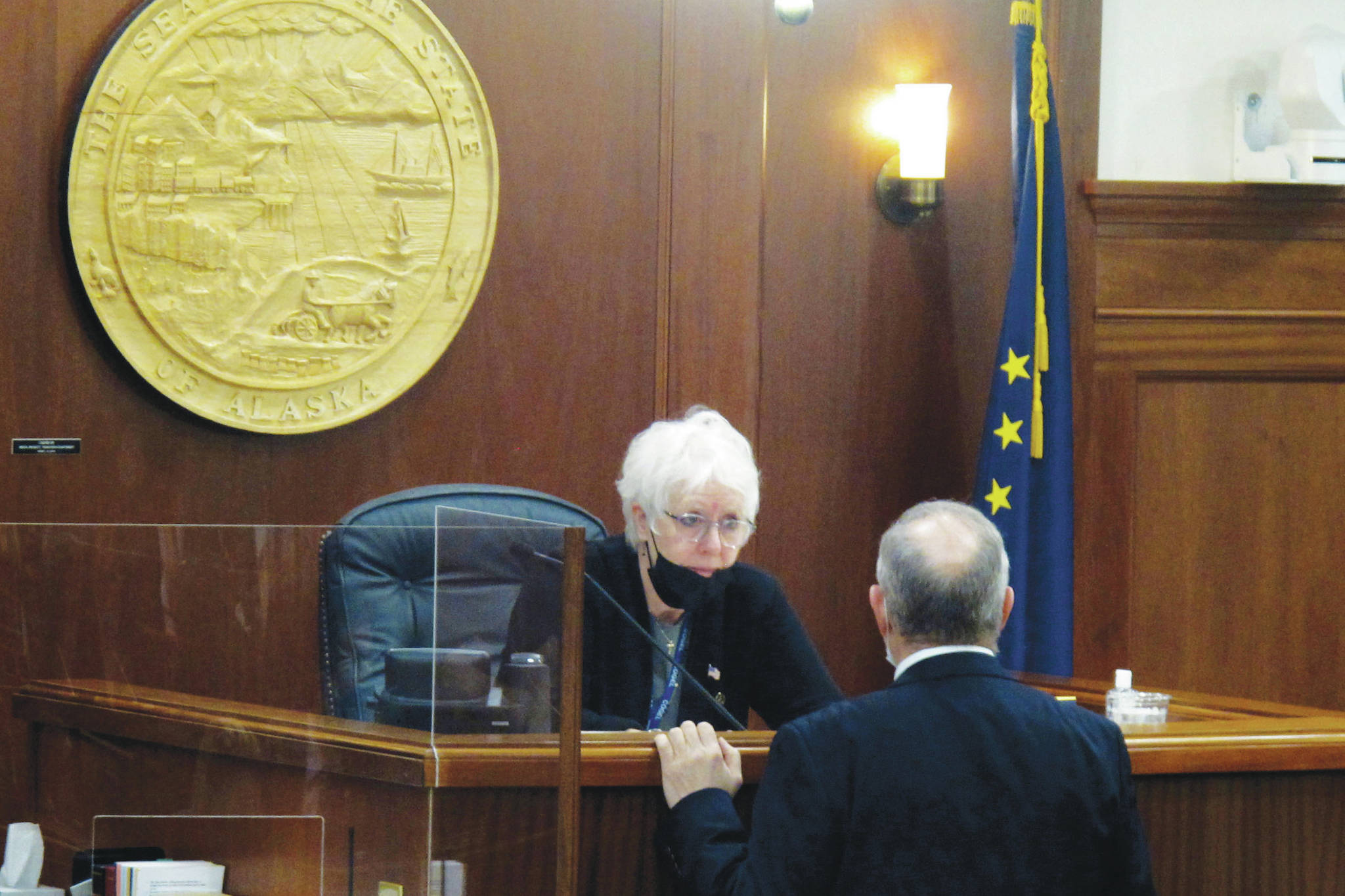By Becky Bohrer
Associated Press
JUNEAU — The Alaska House organized Thursday to begin work — 31 days into the legislative session and a week after choosing a speaker — but questions remained about how functional the 40-member chamber will be.
Two legislators have indicated they do not plan to caucus with or are not currently part of a bipartisan coalition led by Republican Speaker Louise Stutes or an 18-member Republican bloc.
Anchorage Republican Rep. Sara Rasmussen said she is not participating in either caucus but was able to negotiate a seat on the budget-writing House Finance Committee. She told reporters she was “willing to have conversations about certain votes” but had not committed to vote any certain way. She said she won’t support any income tax bills or major oil tax changes.
Rep. Geran Tarr, an Anchorage Democrat, in a statement to The Associated Press, said she’s not a member of the coalition “at this time.” Tarr shared a strongly worded letter, dated Wednesday and addressed to Stutes, that said she had decided against joining Stutes’ coalition. Tarr has previously been part of bipartisan coalitions.
“Belonging to a group whose critical leadership roles were extracted by threats to leave and join the Republican caucus, instead of careful consideration of what’s best for Alaskans, would violate my commitment to honorable public service,” Tarr wrote in the letter, which did not provide specific examples.
In her statement, Tarr said she represents a low-income district where residents have been “devastated” by the pandemic.
“My constituents depend on me to do what is best for them, and I need to be confident that I have the freedom and independence to cast my votes in ways that offer them the best possible representation in state decision-making,” she said.
Tarr and Rasmussen joined coalition members Thursday in supporting the adoption of a report formally setting committee assignments. Tarr said she saw the vote as a way to get the House working after weeks of delay.
Stutes earlier in the week had declared her caucus “21 strong.” When asked Thursday what happened, she said, “life happens.”
“Because we have lots of personalities here, and I think it’s just humanness,” she said of challenges in organizing. Stutes said she believes she will have 21 votes for certain procedural matters and expressed hope in the House coming together.
House Minority Leader Cathy Tilton, a Wasilla Republican, said she felt Alaska voters had spoken in the November election and members of the Republican caucus “strongly believed in following what the voters have asked for.” Of the House’s 40 members, 21 are Republicans.
The mostly Democratic coalition includes independents and two Republicans — Stutes of Kodiak, who has previously been part of a coalition, and Rep. Kelly Merrick of Eagle River, who broke with Republicans to give Stutes the minimum 21 votes needed to become speaker last week. Tarr also voted for Stutes.
A coalition has held power in the House since 2017. Alaska has a Republican-led Senate.
Merrick, who will co-chair the House Finance Committee with Democratic Rep. Neal Foster of Nome, said her vote ensured there would be a Republican speaker. She said the public was demanding the House get to work.
“I’m a mother of three, and I don’t have time to sit in Juneau and do nothing, collecting per diem and not getting the people’s work done,” she said.
Merrick noted Republicans are set to hold six of the committee’s 11 seats; minority Republicans and Rasmussen will account for five of the six. Merrick said she hopes she can be a bridge between the coalition and the Republican caucus.
“Really, we all have a lot in common if we’re willing to put partisanship aside,” she said.
Tilton described her caucus as solid. How the House overall moves forward “will be interesting. I think that it will be very precarious. What I do know is our group plans to stand together” and is open to others joining, she said.
Bills were read in the House Thursday and assigned to committees, something typically done within the first few days of session.
The legislative session is one-third through the 90-day limit set in law. The state Constitution allows for regular sessions of 121 days, with an ability to extend another 10 days.
Lawmakers in recent years have needed extra time, including, often, special sessions, to complete their work. Major issues confront them in this session, including the budget, with Alaska in the midst of a near decade-long run of deficits, and the future of the annual check paid residents from the state’s oil-wealth fund.

